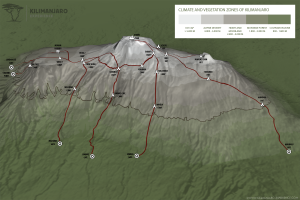Ownership of Serengeti National Park: A Detailed Analysis
Historical Background of Serengeti National Park
The Serengeti National Park, located in Tanzania, is one of the most iconic and renowned wildlife reserves in the world. Spanning over 14,750 square kilometers, the park is home to a diverse range of flora and fauna, including the famous Big Five – lions, elephants, buffaloes, leopards, and rhinoceros.
The history of the Serengeti National Park dates back to the early 20th century when the area was first designated as a protected area by the German colonial government. In 1951, the park was officially established under British colonial rule to preserve its unique ecosystem and wildlife populations.
Over the years, the Serengeti has become a popular destination for wildlife enthusiasts, nature lovers, and tourists from around the world. Its vast plains, rolling savannas, and abundant wildlife make it a must-visit destination for anyone looking to experience the beauty and diversity of Africa’s natural landscapes.
Legal Framework Governing Ownership Rights
The ownership of the Serengeti National Park is governed by a complex legal framework that outlines the rights and responsibilities of various stakeholders, including the Tanzanian government, local communities, conservation organizations, and private entities.
Under Tanzanian law, all national parks, including the Serengeti, are owned and managed by the government through the Tanzania National Parks Authority (TANAPA). TANAPA is responsible for overseeing the conservation and protection of the park’s natural resources, wildlife populations, and ecosystems.
Local communities living in and around the Serengeti National Park also play a crucial role in its ownership and management. These communities have traditional land rights and cultural ties to the land, and their involvement in conservation efforts is essential for the long-term sustainability of the park.
Conservation organizations and non-governmental organizations (NGOs) also have a stake in the ownership of the Serengeti National Park. These organizations work closely with the government and local communities to support conservation efforts, research initiatives, and community development projects within the park.
In addition to government ownership and community involvement, private entities such as tour operators and safari companies also have a role to play in the management of the Serengeti National Park. These companies operate within the park, offering guided tours, accommodations, and other services to visitors seeking to explore its unique landscapes and wildlife.
Overall, the ownership of the Serengeti National Park is a collaborative effort that involves multiple stakeholders working together to ensure the conservation and protection of this valuable natural resource. By balancing the interests of the government, local communities, conservation organizations, and private entities, the park can continue to thrive as a world-class wildlife reserve and a symbol of Africa’s rich biodiversity.
For those interested in experiencing the wonders of the Serengeti National Park, Sunset Africa Safari offers guided tours and safari packages to explore this iconic destination. For booking requests and more information, clients can contact info@sunsetafricasafari.com.


